From the Chicago Reader (March 27, 2000). — J.R.
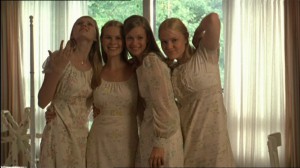
A very curious and eclectic piece of work — fresh even when it’s awkward — that’s built around an unsolved mystery, like Picnic at Hanging Rock. Adapted from a Jeffrey Eugenides novel by director Sofia Coppola, and set in small-town Michigan a quarter of a century ago, it focuses on five teenage sisters as perceived by some of their male classmates; James Woods and Kathleen Turner play the girls’ parents and Giovanni Ribisi narrates. With Kirsten Dunst, Hanna R. Hall, Chelsea Swain, A.J. Cook, Leslie Hayman, Josh Hartnett, Danny DeVito, and Scott Glenn. 96 min. (JR)
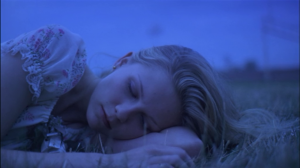 Read more
Read more
From the June 1, 1999 Chicago Reader. — J.R.
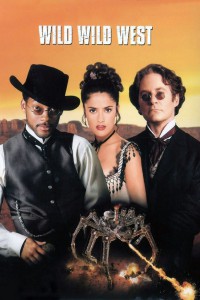
I never saw The Wild Wild West, a comic SF western series about two undercover agents working for President Grant that ran on TV from 1965 to 1970, but from the look of this sprightly spin-off it must have been pretty good. The director (Barry Sonnenfeld) and costar (Will Smith) of Men in Black join forces with Kevin Kline and half a dozen writers to yield an entertainingly offbeat blend of 19th-century science fiction and Hope and Crosby Road comedies (with Salma Hayek in the Dorothy Lamour part). The putative plot involves a mad scientist and Confederate sore loser reduced to an upper torso (Kenneth Branagh) who’s contriving to take over the United States with the aid of an 80-foot mechanical tarantula. Though the movie is as gadget happy as any Bond flick, the pictorial pleasures deriving from Bo Welch’s production design and Michael Ballhaus’s cinematography are central to its charms. This is even lighter stuff than Men in Black, but Sonnenfeld’s cheerful irreverence keeps it reasonable. (JR)
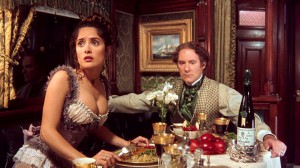 Read more
Read more
From the Chicago Reader (January 1, 1990). — J.R.
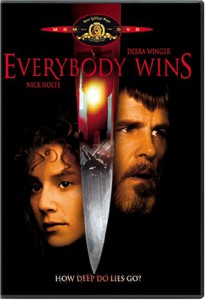
Although it’s far from being wholly satisfying, this bizarre, slow-moving thriller about a righteous detective (Nick Nolte) and a schizophrenic prostitute (Debra Winger) trying to uncover the corruption in a small town in Connecticut that sent an innocent young man to prison for a brutal murder — the first movie scripted by playwright Arthur Miller since The Misfits — has the virtue of coming across like a picture from another era: a 40s film noir, or a neurotic melodrama from the 50s. Directed by Karel Reisz (Morgan!, The French Lieutenant’s Woman) and produced by Jeremy Thomas (Insignificance, The Last Emperor), the film explores its subject atmospherically rather than analytically or in terms of slam-bang action, and what mainly makes it interesting isn’t so much its lame mystery plot as Winger’s character and performance — which manage to triumph over the femme fatale slot the part seems destined for — as well as a peculiar young religious outcast (Will Patton) whose preoccupations form the background to the murder. While parts of the overall conception (including the detective hero) seem innocent and dated, it’s still a welcome relief from the usual right-wing buddy-cops nonsense. Read more





